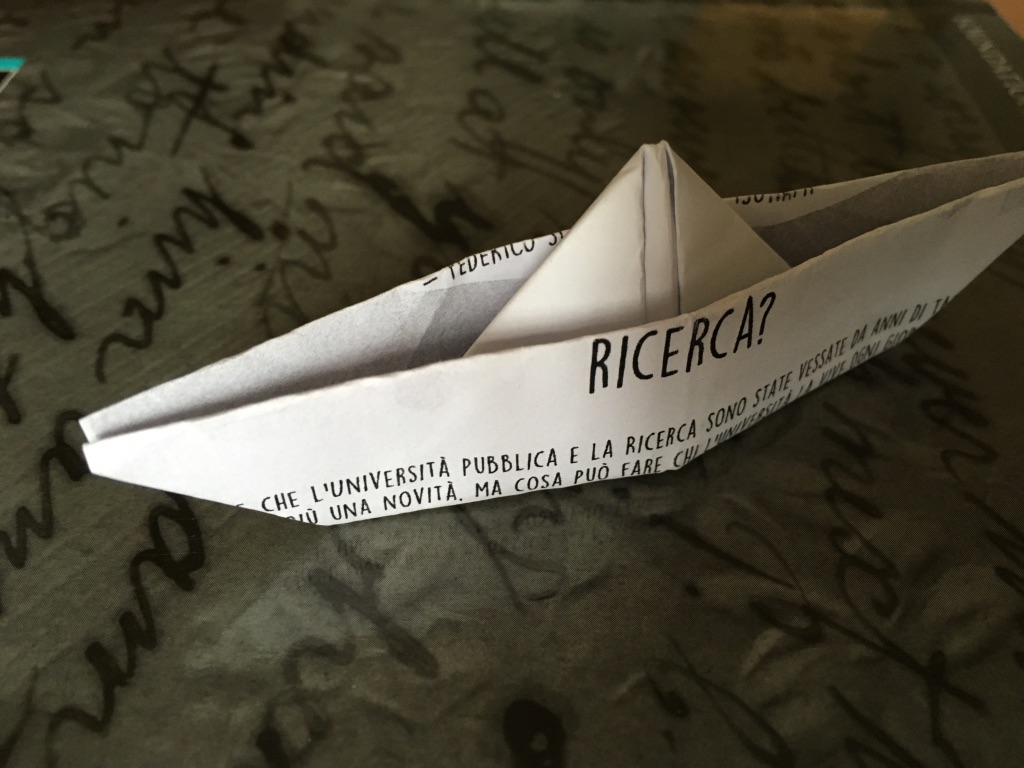|
|
In recent years the debate in the philosophy of literature (especially in the analytic tradition) has accellerated. I have always found it interesting to focus on the question of why there is literature in the first place: what motivated persons to engage their time and energy to create or consume literary works of art? As literature is a very multifarious phenomenon, the answer is likely very complex; but we can approach to get a better idea if we can explain one aspect that is often mentioned in discussions concerning the merits of literature: the fact that it broadens our intellectual horizons – and yet, it is the cognitive value of literature that has often been doubted by philosophers.
The Nature of Literature and Fiction
Engaging with Works of Fiction
in: Rivista di Estetica 70 (1/2019), pp. 107-124.
Literary Style
in: Routledge Companion to Philosophy of Literature. ed. by Noël Carroll and John Gibson, London/New York: Routledge (2016), pp. 195-204.
Sprache im literarischen Text
in: Wahrheit, Wissen und Erkenntnis in Literatur. Philosophische Beiträge ed. by Christoph Demmerling und Íngrid. Vendrell Ferran (eds), Berlin: Akademia Verlag/de Gruyter, 2014, pp. 57-69.
La Filosofia della Letteratura: un pregiudizio a favore della finzione?
in: Narrazione e realtà: il senso degli eventi ed. by Guido Ferrero e Antonio Santangelo. Roma: Aracne, 2017, pp. 137-154.
Gibt es Fehler im fiktionalen Kontext?
Grenzen der dichterischen Freiheit
in: Was aus Fehlern zu lernen ist in Alltag, Wissenschaft und Kunst, ed. by O. Neumaier, Wien: LIT Verlag, 2010, pp. 211-27.
Perché la filosofia della letteratura
in: Quaderni della ginestra 6 (2012), pp. 43–47.
The Cognitive Value of Literature and Fiction
Why Read Literature?
The Cognitive Function of Form
in: A Sense of the World: Essays on Fiction, Narrative and Knowledge, ed. by J. Gibson, W. Huemer, and L. Pocci, London: Routledge, 2007, pp. 233-45.
Form und Erkenntnis
Wie Kunst und Literatur Wissen vermitteln
in: Kunst denken, ed. by A. Burri and W. Huemer, Paderborn: mentis, 2007, pp. 117-34.
Erlebnis und Erkenntnis
in:
Die Rückkehr des Erlebnisses in den Geisteswissenschaften, ed. by Mathis Lessau and Nora Zügel. Ergon Verlag, 2019, pp. 77-91.
Power and Limits of a Picture
On the Notion of Thought Experiments in the Philosophy of Literature
in: Literature as Thought Experiment?, ed. by Frank Bornmüller, Mathis Lessau and Johannes Franzen, Paderborn: Fink, 2019, pp. 71-82.
“I poeti sono mentitori per professione”? Il valore cognitivo della letteratura
in: La società degli individui 32 (2008), pp. 9-24.
Dichter als Vordenker, Leser als Nachdenker
Der kognitive Gehalt fiktionaler Werke
in: Proceedings von GAP. 7: Nachdenken und Vordenken – Herausforderungen an die Philosophie, ed. by Oliver Petersen, Dagma Borchers, Thomas Spitzley and Manfred Stöckler Duisburg/Essen: DuEPublico, 2012, pp. 785-94.
[BOOK] A Sense of the World: Essays on Fiction, Narrative and Knowledge
ed. with John Gibson and Luca Pocci. London: Routldge, 2007.
[BOOK] Kunst denken
ed. with Alex Burri, Paderborn: mentis, 2007.
On specific relations
Phenomenological Reduction and Aesthetic Experience
Husserl Meets Hofmannsthal
in: Writing the Austrian Traditions: Relations Between Philosophy and Literature, ed. by W. Huemer and M.-O. Schuster, Edmonton: Wirth-Centre for Austrian and Central European Studies, 2003, pp. 121-30.
Non parlare e non tacere. Thomas Bernhard e Ludwig Wittgenstein
in: Filosofia e letteratura in età moderna e contemporanea, ed. by Cristina Santinelli. Firenze: le Lettere, 2020, pp. 371-284.
Wittgenstein e la letteratura
in: Wittgenstein, estetica e arte, ed. by Elisa Calderola, Davide Quattrocchi and Gabriele Tomasi, Roma: Carocci (2013).
Wittgenstein, il filosofo dei poeti
in: Pensare la vita. I messaggi dei grandi filosofi, ed. by Ferruccio Andolfi, Reggio Emilia: Aliberti, 2013, pp. 139-160.
Wittgenstein’s Enigmatic Remarks on Shakespeare
to appear in: The Routledge Companion to Shakespeare and Philosophy, ed. by Craig Bourne and Emily Caddick Bourne, London/New York: Routledge, 2018, 197-204.
The “Character” of a Name: Wittgenstein on Shakespeare
in: Wittgenstein Reading, ed. by Sascha Bru, Wolfgang Huemer and Daniel Steuer, Berlin: de Gruyter, 2013, pp. 23-37.
Misreadings. Steiner and Lewis on Wittgenstein on Shakespeare
in: Philosophy and Literature 36/1 (2012), pp. 229-237.
Angoscia e sorriso. Il paradosso della tragedia. Una sfida per l’estetica fenomenologica?
in: Cristianesimo, Teologia, Filosofia. Studi in onore di Alberto Siclari, ed. by F. Rossi, Milano: FrancoAngeli, 2010, pp. 197–204
Wittgenstein, Language, and Philosophy of Literature
in: The Literary Wittgenstein, ed. by J. Gibson and W. Huemer, London: Routledge, 2004, pp. 1-13.
German translation:
Wittgenstein, Sprache, und die Philosophie der Literatur
in: Wittgenstein und die Literatur, ed. by J. Gibson and W. Huemer, trans. by Martin Suhr, Frankfurt/M.: Suhrkamp, 2006, pp. 9-29.
Chinese translation:
导论:维特根斯坦.语言与文学哲学
in: 文人维特根斯坦, ed. by J. Gibson and W. Huemer, Shanghai: Sanhui Culture and Press, 2008, pp. 1-18.
[BOOK] The Literary Wittgenstein
ed. with John Gibson. London: Routledge, 2004.
German translation:
Wittgenstein und die Literatur
Frankfurt/M.: Suhrkamp 2006.
Chinese translation:
文人维特根斯坦, Shanghai: Sanhui Culture and Press, 2008.
[BOOK]: Wittgenstein Reading
ed. with Sascha Bru and Daniel Steuer. Berlin: de Grutyer, 2013.
[BOOK] Writing the Austrian Traditions
Relations between Philosophy and Literature [OPEN ACCESS]
ed. with Marc-Oliver Schuster, Edmonton: Wirth Institute for Austrian and Central European Studies, 2003. |

